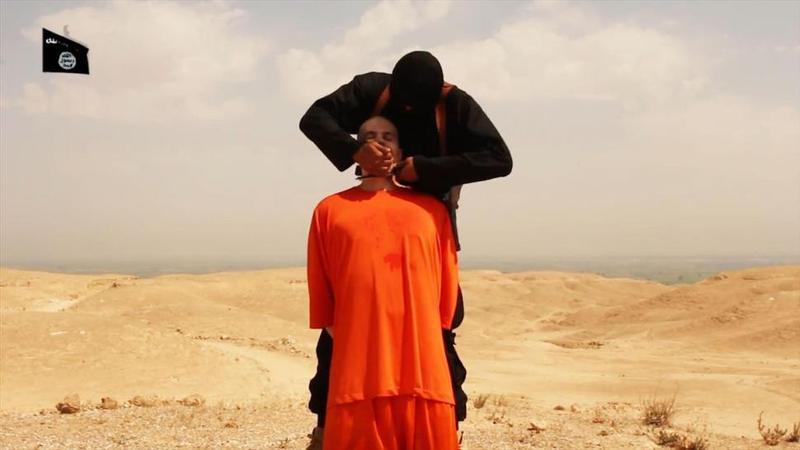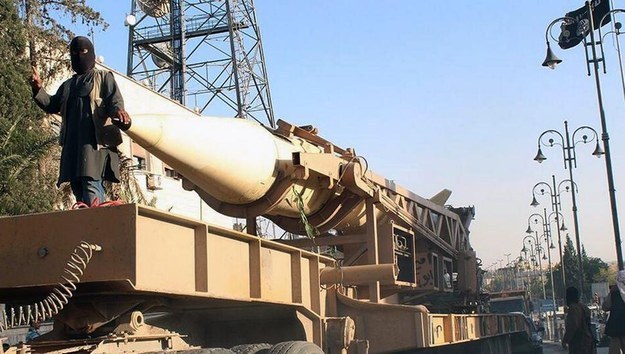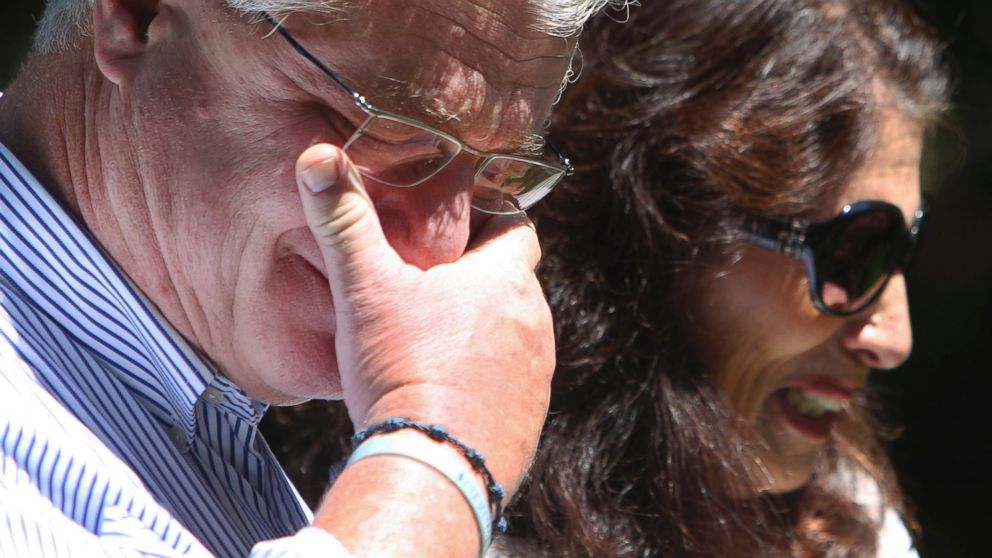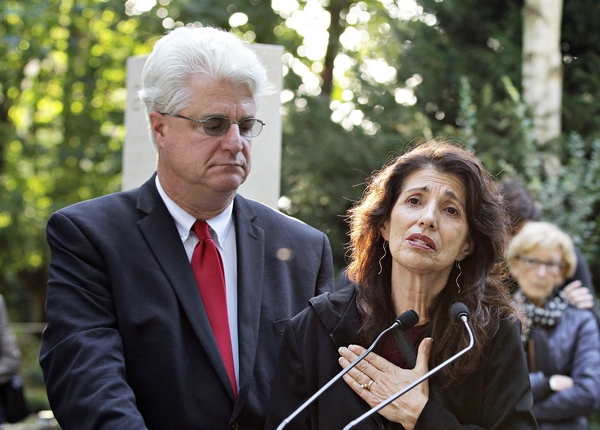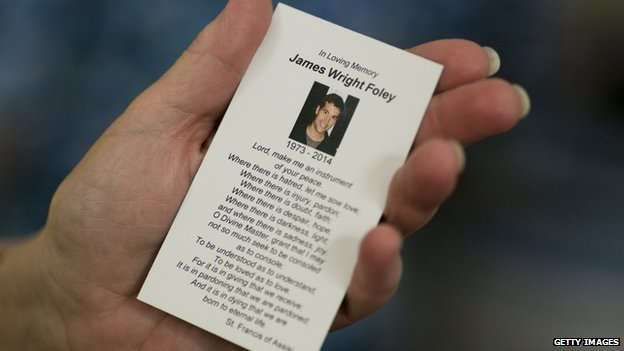The Islamic State Is Trying To Sell The Headless Body Of James Foley For USD1 Million
Having murdered American journalist James Foley by removing his head, the Islamic State is now trying to profit from his death by selling his body for $1 million, according to an exclusive report by BuzzFeed.
Some four months after beheading American photojournalist James Foley, the Islamic State is trying to ransom his remains for USD1 million, according to a new report by BuzzFeed
Citing sources working as intermediaries for ISIS and potential U.S. buyers, BuzzFeed's foreign correspondent Mike Giglio describes "a grim new method of [ISIS] trying to secure funds":
Three sources in contact with ISIS or its associates told BuzzFeed News that it wants to sell the remains of James Foley, the U.S. journalist whose August death was the first in a series of high-profile executions of Western hostages by ISIS hands.
They said ISIS wants $1 million for Foley's body, which it would deliver across the border to Turkey, and that the group was willing to provide a DNA sample to facilitate a deal.
If true, the attempted sale would highlight the ruthlessness behind the hostage-taking enterprise that has provided ISIS with deep reservoirs of funds and publicity — as well as the group’s cold calculation as it works to raise more cash.
The middlemen have been kept anonymous by BuzzFeed, which said that one of the men claimed his motivation was "a humanity case," and an attempt to help the grieving family find closure. Another was less worried about appearances: "This is business."
One, a former Syrian rebel fighter, has ties to ISIS commanders dating to the early stages of Syria’s civil war. He said he has served as an intermediary in hostage negotiations with Jabhat al-Nusra, the Syrian branch of al-Qaeda, and with ISIS. One day this fall, to prove his bona fides in the murky trade, he opened his iPhone to display unpublished videos of Western hostages in Nusra’s custody.
This former rebel said he was approached by an ISIS leader who asked him to find a channel to either the U.S. government or Foley’s family. Like the other sources, he noted a price of $1 million and the promise of DNA. “They ask for $1 million, and they will send DNA to Turkey, but they want the money first,” he said. “They will not give the DNA without the money.”
He claimed his motivation was to help the grieving family find closure, calling his work “a humanity case.”
Another intermediary, a businessman who has sought to use his own ISIS connections to facilitate hostage deals in the past, was candid about his goals: “This is business.”
All three sources said that one point person for the negotiations would be a senior official in the Free Syrian Army (FSA)
Both the former rebel fighter and the businessman said that one point person for the negotiations would be a senior official in the Free Syrian Army (FSA), the U.S.-backed rebel coalition, who was involved in previous ISIS talks over U.S. hostages as well as deals to free European ones.
In an interview in Antakya, this FSA official expressed dismay that word of the attempted sale of Foley’s remains had leaked. He urged this reporter not to publish an article on the subject, fearing that the attention could sabotage any potential deal.
Of particular concern, he said, was that the U.S. government might seek to put a stop to it. Having allowed the U.S. hostages to die in ISIS custody, he reasoned, it would look bad if such a deal succeeded now. “It will be like a shame for the U.S. government,” the FSA official said. “People will ask why you brought the body but you didn’t bring him when he was alive.”
Earlier when ISIS was keeping James Foley hostage, his parents had said that the U.S. government threatened them with prosecution if they paid a ransom for their son's release
The mother of slain American journalist James Foley said she wasn’t necessarily surprised that the U.S. government threatened her family with prosecution should they raise money to pay her son’s ransom, but she was astounded by how such a devastating message was delivered.
“I was surprised there was so little compassion,” Diane Foley told ABC News of the three separate warnings she said U.S. officials gave the family about the illegality of paying ransom to the terror group ISIS.
“It just made me realize that these people talking to us had no idea what it was like to be the family of someone abducted… I’m sure [the U.S. official] didn’t mean it the way he said it, but we were between a rock and a hard place. We were told we could do nothing… meanwhile our son was being beaten and tortured every day.”
Foley's brutal death in August shocked the world when a video of his beheading at the hands of ISIS fighters surfaced online
Since then, the Islamic State has released videotaped executions of US journalist Steven Sotloff, British aid worker Alan Henning, and US aid worker Peter Kassig.
Hostages still being held by Islamic State militants include unnamed 26-year-old US woman and British journalist John Cantlie. Cantlie has not publicly been threatened with murder yet, but he is being forced to present an Islamic State "series" titled "Lend Me Your Ears."
One issue that has been hotly debated since the murders began is the US and British policy of not paying ransoms for kidnapped citizens — something that released hostages have said was the dividing line between deciding who lived and who died.
In response to the idea of charging a ransom for the remains of Foley, a senior US diplomat called the idea "disgusting," while a US State Department official said that they were "seeking more information" on the credibility of the claim.
In a statement after his death, his parents said:
"We have never been prouder of our son Jim. He gave his life trying to expose the world to the suffering of the Syrian people… He was an extraordinary son, brother, journalist, and person."
On November 27, Foley's family posted on Facebook: "Two Thanksgivings ago, James Foley was kidnapped in Syria. Thinking of him today and missing him dearly, but so thankful for the time he was in our lives, and our memories together."
